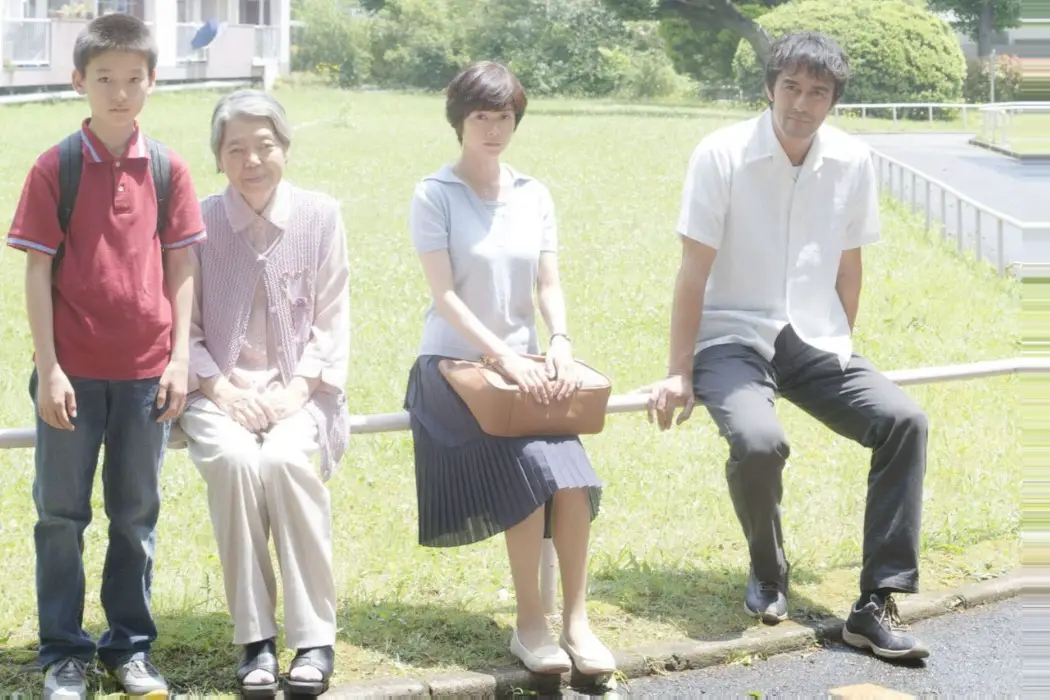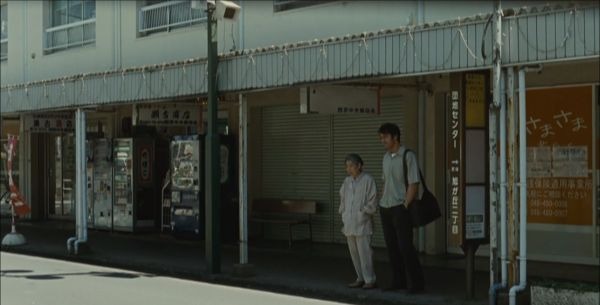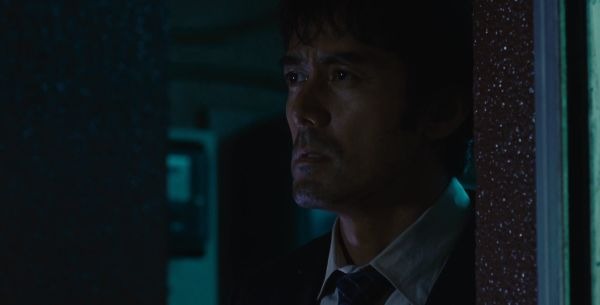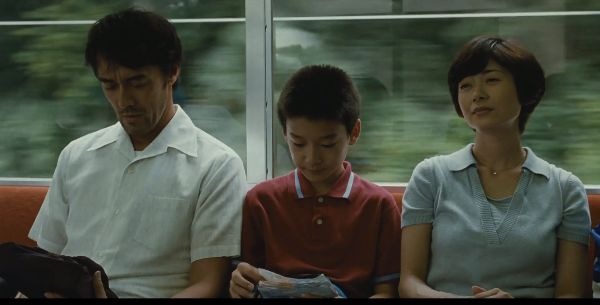AFTER THE STORM: Tokyo At Its Most Personal

Tynan loves nagging all his friends to watch classic movies…
There is a phenomenon in Japan called hikikomori (pulling inward). It mostly applies to 20-somethings who are overwhelmed at the world around them and so they isolate themselves on purpose, sometimes for years at a time. But in 2017, an article came out in The New York Times to document a different and yet somehow similar occurrence in older generations.
Many Japanese people run the risk of dying alone if they have no family, because many live without a network of community and neighbors, and might still be invariably isolated in their own right. I have lived there for an extended period of time, granted as a foreigner, and yet I could feel the weight of such an environment.
Thus, dutiful grown children worry for their aging parents, about being the good son or the good daughter. That is what is expected of them. It’s their cross to bear. This type of familial dynamic is visible in After The Storm as well but it’s given credence and expressed by two loving, albeit, imperfect individuals.
White-haired and bright-eyed Yoshiko (Kirin Kiki) is a wonderful lady. She gives her grown son Ryota (Hiroshi Abe) a playful slug in the stomach, tells him to his face he’s a horrible liar but always in love. Invariably, quibbles ensue between siblings over taking advantage of their mother’s good graces since she lives only off her pension now following the death of her husband.
A Film By A Local
And yet there is a certain relish in the relationship between mother and son, especially because even if it’s not a perfect portrait you get the sense that they care deeply for each other. It’s After The Storm‘s most gratifying interaction watching Abe and Kiki play off each other with authentic warmth. Menial interactions take on the utmost meaning because they manage to color the characters in honest ways and the film has many of these seemingly inconsequential moments. That’s a product of its pacing.

My hope is that more people will come to recognize and search out the films of Hirokazu Kore-eda, who not only serves as the director but also the writer and the editor of most of his work. Some have labeled him Japan’s contemporary Ozu but he considers his work more akin to his fellow forefather Mikio Naruse or British filmmaker Ken Loach. What becomes obvious is the care he takes with not only his subjects but his camera and the sequencing of shots. There’s a meticulous craftsmanship that is exquisite, just as Kirin’s performance is blessed with these intricate movements that are naturalistically precise. Watch and understand.
For people who haven’t lived in Tokyo, preconceived notions of the bustling metropolis might come from the likes of Lost in Translation (2003), a film personified by ultra-hip areas like Shinjuku, Shibuya, and Harajuku touted for their nightlife, shopping, and fashion. But there are a lot of other places too, as Kore-eda suggests. The Tokyo made up of suburbs, apartment complexes, and more ordinary landscapes. The Nerimas and Kiyoses of the world. Because these are the places he grew up and went to school in no doubt. They are part of his identity.
Sofia Coppola’s film works because it is going for the perspective of an outsider. It’s imperative that we relate to the characters through that particular lens and for any foreigner who has traveled to Japan, there’s probably instant recognition of that same sense of isolation even if it’s only momentarily.
I enjoyed After The Storm immensely because it has an attention to detail and the touches of a local – someone who has known this terrain intimately. I distinctly remember the first time I ever came back to the United States knowing I would soon be returning to Japan. And in that moment I no longer felt like a tourist but someone with a new sort of understanding. It’s crucial because it changes your entire outlook and what you deem important. The big moments aren’t as relevant or crucial as the day-to-day.
A Flawed Hero
Hiroshi Abe’s performance is so exquisitely rendered because while the picture is by no means a comedy his various ticks, expressions and even his lumbering figure are humorous without ever truly meaning to be. They are human and so despite his shortcomings (he’s practically a man-child) there’s something that still resonates there. When we look over his life we see a bit of his restlessness. He admits to not being the man he wants to be. He has regrets too.

Because his ex-wife (Yoko Maki) is seeing another man now, and here, the “rich new boyfriend” feels like a universal trope that doesn’t need much explanation. Meanwhile, Ryota rarely gets to see his son, only on pre-arranged days where he pays child support. He’s notoriously bad at making their meetings on time too. That and other reasons provide hints as to why his wife left him. That doesn’t mean he doesn’t hold onto some wistfulness, especially where his son is involved.
Though once a prize-winning author, most recently Ryota’s taken on a job as a private investigator. He says it’s only temporary as research for his latest project, but it’s been going on far too long. He’s started getting used to it and so have his co-workers.
He wants to be able to buy his son a new baseball glove and cleats, even though the money he earns barely suffices to pay rent. His greatest vice is that he likes to gamble with his paychecks, dragging along his partner. He writes it off as harmless fun. The stereotypical dynamic is that the veteran is supposed to teach his wet-behind-the-ears colleague the ropes. Ironically, his colleague Machida (Sosuke Ikematsu) seems to have everything together as Ryota flounders around. This juxtaposition much like the financial success his wife’s new boyfriend only magnifies our hero’s flaws.
The Typhoon Hits
After the Storm‘s point of departure and ultimate revelation, if there is one, comes in the wake of a typhoon. Again, living in Japan you understand that this is a fairly common occurrence. But it’s the regular person’s side of Tokyo away from the bright lights and glamour.
The final act unfolds in Yoshiko’s flat as she tries to play benevolent matchmaker for her son and former daughter-in-law. There we have Ryota, his son, and Kyoko, his estranged wife who reluctantly agrees to stay over for the night. Conveniently the inclement weather makes leaving all but out of the question.

It’s just like old times. At least that’s what Abe’s character wants but they can’t be, not now. The situations might be familiar but the individuals are not. The moments of conversation and pleasantries run the gamut from somewhat uncomfortable to undeniably painful as old wounds are no doubt rehashed.
But whereas another film would have spent all of its efforts trying to wring nuggets of wisdom from these sequences alone, After The Storm keeps on cycling through the everyday events undaunted. Trying to field lost lottery tickets in the swirling downpour or shielding oneself at a park watching the debris fly by is enough of a diversion. The intent is to consider not so much the environmental changes but how our characters change, however slight.
After the Storm: New Life?
Of course, implicit in the translated title is that there is something new (あたらしい) about life. And yet when we get on the other side of the storm it’s difficult to know. That would be the form of a typical film. To make the before and after look drastically different with a happy ending all but foretold. Here there is no doubt characters have changed, but externally their behavior seems all but the same. The development is incremental and internalized.
I appreciate that. In life, there’s rarely a megaphone to announce such developments for us. Sometimes its imperceptible to the eye. It’s even notoriously difficult to acknowledge some changes in ourselves and yet we know that they are there. Because to our last breath, we are indubitably works-in-progress. We will never be perfect. That’s part of what makes life and this film thoroughly intriguing while still glimmering with a certain hopefulness.
Have you seen any other films by Hirokazu Kore-eda? What other films give a contrasting depiction of Japan?
After The Storm originally premiered at Cannes Film Festival on May 18th, 2016. It is available on Kanopy and other streaming services.
Does content like this matter to you?
Become a Member and support film journalism. Unlock access to all of Film Inquiry`s great articles. Join a community of like-minded readers who are passionate about cinema - get access to our private members Network, give back to independent filmmakers, and more.
Tynan loves nagging all his friends to watch classic movies with him. Follow his frequent musings at Film Inquiry and on his blog 4 Star Films. Soli Deo Gloria.













